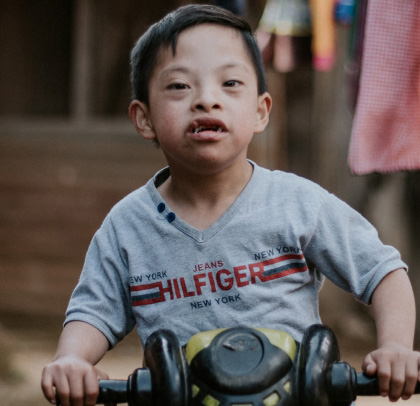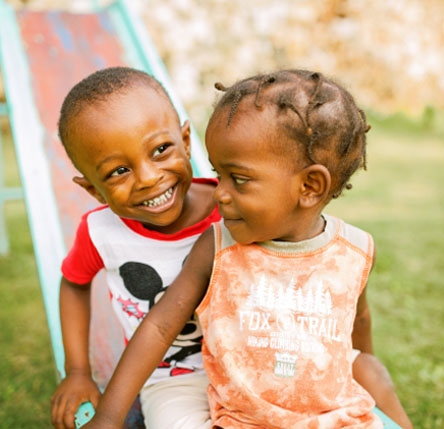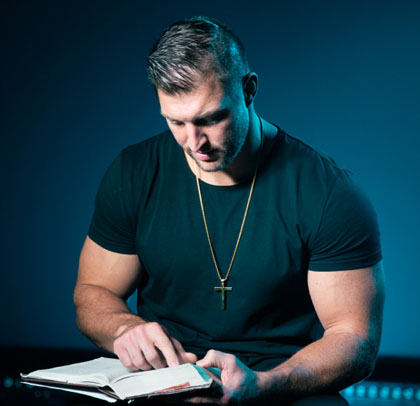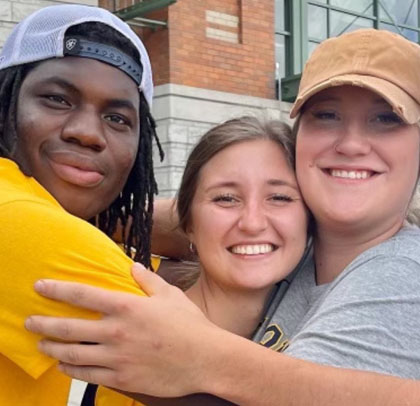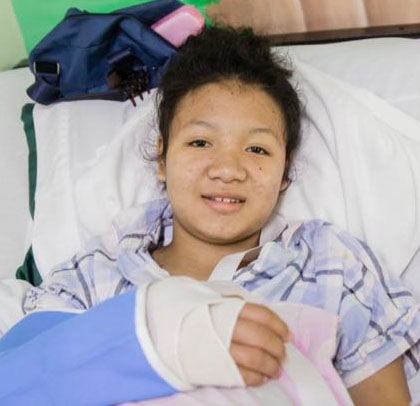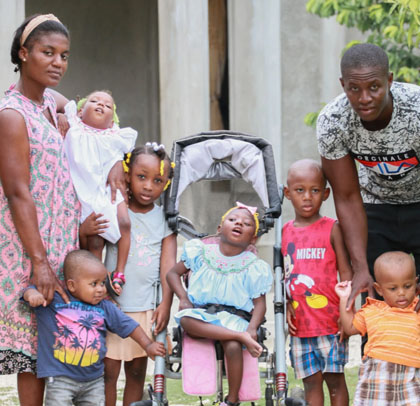Patricia: Her Disability Doesn’t Define Her Future
Hello February 3rd, 2025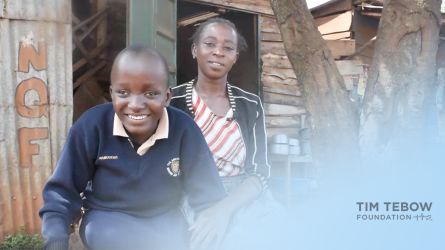
Share This Story
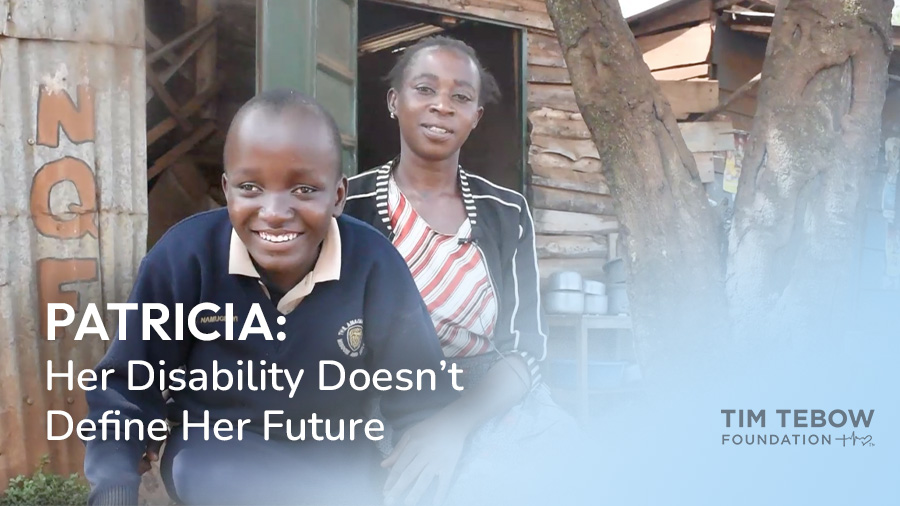
From isolation to belonging: How a mother and daughter in Uganda found hope and community.
UGANDA, February 2025—Nankindu Prossy vividly remembers the rainy Monday in April 2009 when her daughter, Patricia, was born. “I was so happy! She didn’t have any signs or symptoms of sickness... She was just like any other child. She was crying a lot, though. We couldn’t tell why.”
At three months old, however, Patricia started showing symptoms that something might be wrong. That’s when Nankindu brought her to the hospital. “She was scanned, and [they] told me to come back in two weeks to do surgery.”
Patricia was diagnosed with hydrocephalus—a neurological disorder caused by an abnormal buildup of cerebrospinal fluid in the brain. The condition can cause brain tissue damage, resulting in significant intellectual, developmental, and physical disabilities. If left untreated, it can be deadly.
Patricia desperately needed life-saving surgery to drain the fluid.
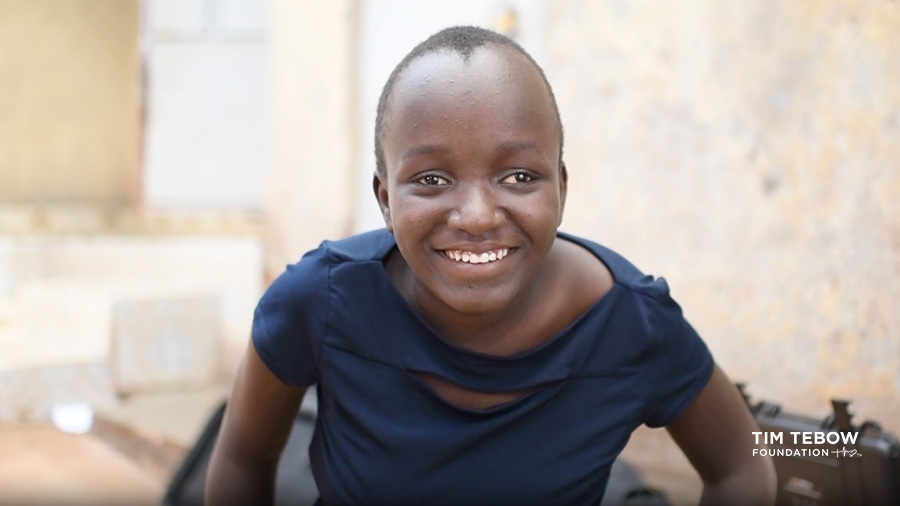
“Everyone you tell [that] the child has fluids in the head, they are surprised. And I had also never seen it before, so that's why I was scared.”
Despite not having a stable source of income, Nankindu was determined to get her daughter the surgery she desperately needed. Thankfully, the hospital allowed her to pay for it in small installments, and Patricia received the surgery! The procedure was successful, but some brain tissue had already been damaged.
It was really hard looking for that money without a job. It was a lot, and when I came back here, the father of my child didn't care. I started looking for work doing laundry for people and got some help from family members.”
In Uganda, children with disabilities and their families often face stigma and discrimination in their communities. Many of these beliefs are held because of a lack of education and knowledge about disability. Nankindu said that, from her experience, most people who have a child with a disability in Uganda try to institutionalize them. “They see them as burdens.”
For years, Nankindu was hesitant to bring Patricia into the community out of fear of judgment from others. Because of this, she would often leave Patricia at home alone while she went to run errands or work. An intelligent and perceptive young girl, Patricia started to pick up on cues that she was different than others. She noticed other kids going to school and longed to do the same.
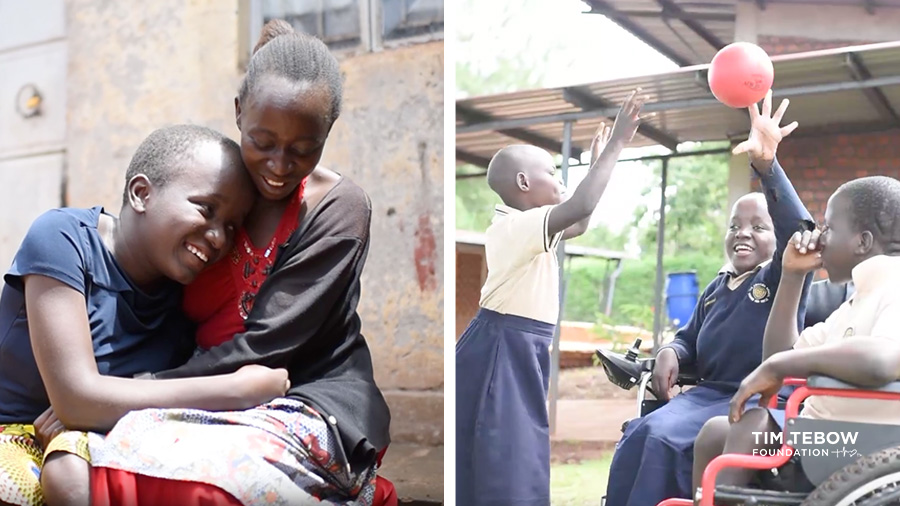
“I was so happy to find Ekisa. [I’m] so grateful for all the help they have given us then and now... For a long time, Patricia [felt] sorry for herself, thinking she was alone. [At Ekisa] she found belonging, she was so happy she found friends.” Interacting with Ekisa’s team, Nankindu came to understand that her child was created in the image of God and that her disability didn’t define her.
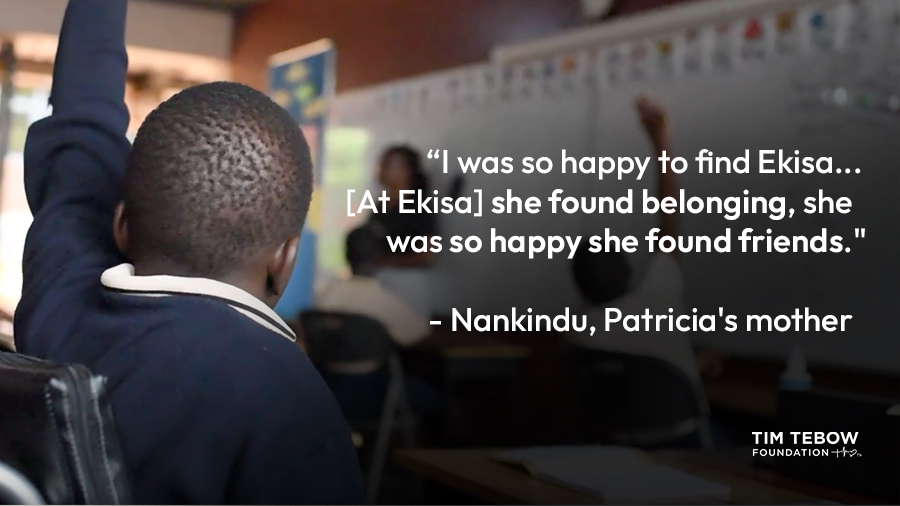
Through the connection with Ekisa Ministries, Nankindu and Patricia came to understand that life with a disability doesn’t mean incapability. Not only did Nankindu’s view of her daughter change, but Patricia’s self-confidence blossomed. Slowly, their perspective transformed—Patricia’s condition wasn’t a hindrance. It was a catalyst propelling her toward God’s perfect and unique plan for her life.
“The hope Ekisa brought to me and Patricia is that Patricia would be able to do something important in the future. She feels like in the future, she can do something that generates income. She keeps talking about it, being a tailor or cobbler. So, we have lots of hope.”
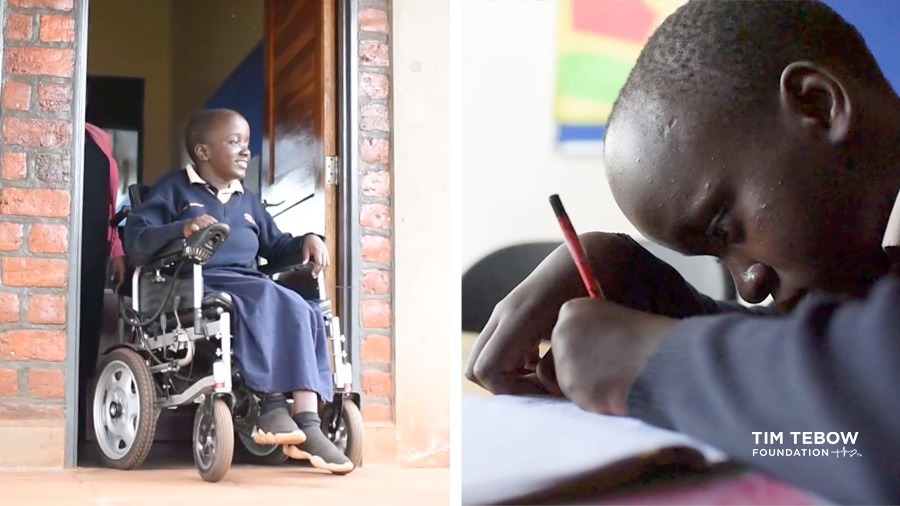
In addition to a newfound sense of hope and purpose, Patricia has also developed a deep faith and trust in the Lord.
“Patricia is a girl of faith... She is a person who loves God and is prayerful. Every time I come back from work, she asks me if we have gotten any money. When I say ‘no,’ she says, ‘God will provide tomorrow.’’’
Thank you to our TTF Giving Family for helping make transformation and hope-filled stories like Patricia’s possible for people living with disability around the globe! Together, we continue to empower families and remind them of their worth, value, and dignity as precious image-bearers of God.
Will you join us in praying for Patricia and her mother, Nankindu, as they continue to step into the wonderful plans God has for them?
